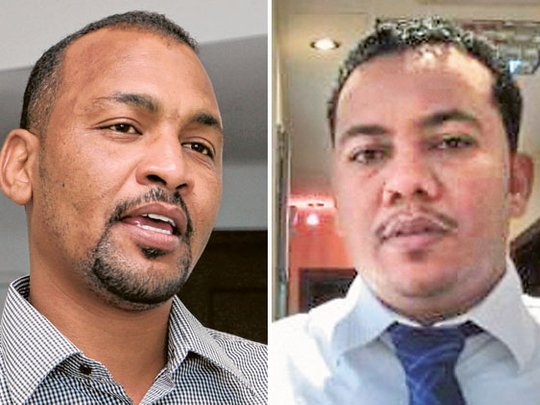
Abu Dhabi: Sudanese citizens living in the UAE had mixed feelings about the independence of South Sudan. While some expressed hope for a better future, others were sceptical.
The Republic of South Sudan became an independent state on July 9, 2011, following a referendum held in January in which an overwhelming 99 per cent of the voters opted for independence of South Sudan.
This referendum was in accordance with the 2005 Comprehensive Peace Agreement reached between the fighting parties to end a civil war that lasted 22 years and claimed the live of more than two million people.
English teacher Mohammad Mahjoub, 35, is optimistic about the new nation. "I am very happy with this split. The culture and ethnic origin of the South is entirely different from the North," he said.
People hope that stability allows both the governments to focus their financial and other resources on the much-needed economic and social development of the two nations.
"People in the South believe we occupied them and exploited their resources, which is not true. The North part of Sudan is rich in animal and gold resources.
‘Never dependant'
"The Northern part was never dependant resource-wise on the South," Mahjoub added.
He expressed hopes for a brighter future for both the countries. "I am confident we will do well. The budget that was used to wage the war will now be spent in developing the infrastructure of the country," he said.
Abu Fajr, 36-year-old engineer, also favours the separation. "The civil war caused significant damage to the country and consumed a large part of the budget. I lost several members of my family," he said.
"The government is justifying the regression and lack of economic growth by the civil war, so now the situation should improve. Anyways after all it's their choice," he added.
Restoring peace
Hossam Abdul Razek, 34-year-old, civil engineer, however expressed sadness saying: "Sudan should have remain united. However, we accept this step with pain only if it puts an end to the war and restores peace."
Mohammad Othman, a 30-year-old translator, said: "We Sudanese are peaceful people in general. If South Sudan people feel they ethnically don't belong to the rest of us, then it's their right to determine their fate and I respect their wish. However this break will negatively impact the economy of the country."
Khalid Othman, a 29-year-old engineer, wrote a sad poem about the separation. He believes the split "was for political reasons; we accept it reluctantly if it will reduce the problems resulting from the civil war."
Essam Farraj, 51-year-old sales director, shared Othman's anguish saying: "We are used to the map of Sudan as a whole. It is so painful to see this split, however, I respect the South Sudan people's wish; they know better what is best for them."
Against this separation
Mahmoud, a 27-year-old engineer, was also against this separation. "I am very sad, a part of the Arab Nation is gone," he said.
Fatima, a 48-year-old housewife is equally cheerless about the separation. "It is so gloomy to see my country split. We were used to one Sudan. This will not be a positive development to any party," she added.
The UAE had announced its recognition of South Sudan as an independent state in a statement issued by the Ministry of Foreign Affairs last week. It stated that "the UAE hopes that the declaration of the Republic of South Sudan will open a new page in achieving security and stability to serve the interests of the peoples of the region.
"The UAE is keen to bolster co-operation and to build close relations with South Sudan politically, economically and socially," the statement said.












